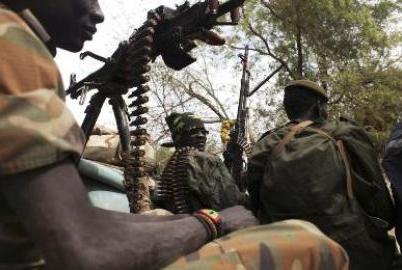South Sudan opposition faction criticizes government’s order to shoot down planes
December 13, 2015 (ADDIS ABABA) – The armed opposition faction of the Sudan People’s Liberation Movement (SPLM-IO) under the leadership of former vice-president, Riek Machar, has criticized the decision taken by the government to shoot down planes which allegedly violate its air space, saying the order was notoriously targeting planes used by humanitarian organizations which have been supplying basic relief items to the war affected areas across the country.

On Friday president Salva Kiir’s government said it had ordered its forces to use their air defense systems to shoot down any plane crossing South Sudan’s air space or flying within the territories of the new nation without permission.
Both the minister of information and broadcasting, Michael Makuei Lueth, and spokesman of the South Sudanese army (SPLA), issued separate statements confirming the issuance of the order, and that the army’s chief of general staff, Paul Malong Awan, had already directed the army to shoot down such planes.
Juba accused unnamed countries of violating its air space or delivering weapons and ammunition to some locations within the country.
Opposition faction leader’s spokesman however said the order by president Kiir’s government was dangerous to the safety of the planes flying over the air space of the new nation as well as for the operations and safety of the planes used by international relief organizations for delivering humanitarian assistance to the war affected populations.
He questioned the timing of the decision and capability of president Kiir’s administration to identify planes which have or have not sought permission to fly inside or across the country.
“It is not simply about the principle of sovereignty of a country over its airspace. Does president Kiir’s regime have the capacity and capability to do the right thing?” Dak inquired.
“Does the regime have the necessary radar coverage systems to provide it and its forces with accurate information about identities of flying planes over its airspace?” he challenged.
He said majority of president Kiir’s forces are undisciplined and can implement the order to shoot down planes flying with low altitude without proper judgement, therefore posing great danger to the planes operating in the country.
He mockingly said he hoped the government was not simply impressed by the recent incident between Turkey and Russia, referring to the last week’s shooting down of Russian warplane which flew over Turkish airspace without permission.
The decision, Dak said, will not only scar planes already flying inside the country with permission for relief deliveries, but also other commercial planes from the region which have been flying to South Sudan or using its airspace with permission because they will not trust the judgement of those who will be implementing “this notorious” order, despite lack of capable air defence system in South Sudan.
He also doubted whether South Sudan has lately improved on its aviation system, saying for many years planes used to fly across its air space without being detected due to lack of radar system in place to identify from the control tower which plane was flying across the country.
He also challenged that fighter jets from “a neighbouring country” he did not name had carried out air attacks deep inside South Sudanese territory many times over the years without a resistance from the so-called air defence system of South Sudan.
Humanitarian workers have also warned that the move by the government to shoot down planes would possibly affect their operations in a country where more than half of the populations depend on the relief assistances and air movement.
(ST)
